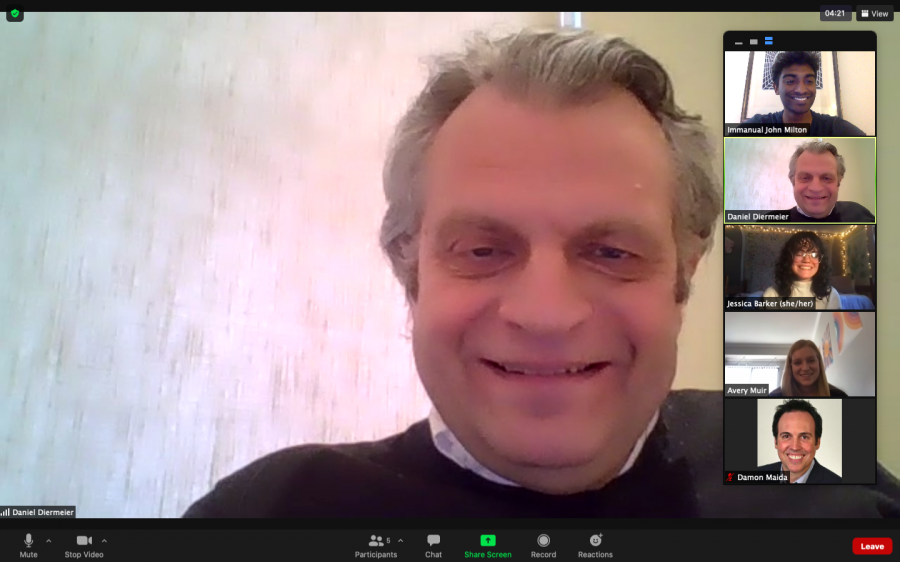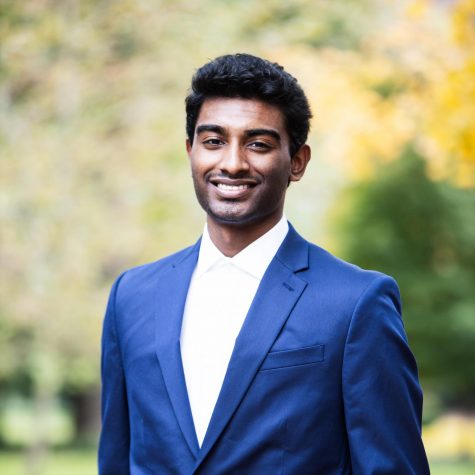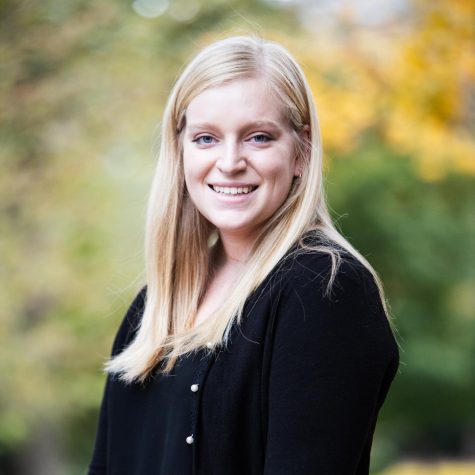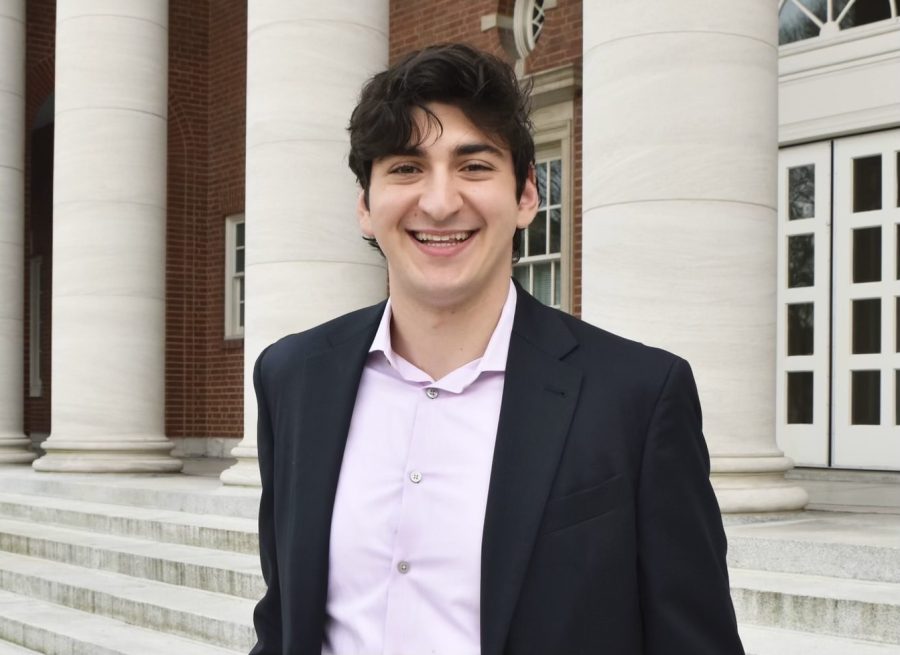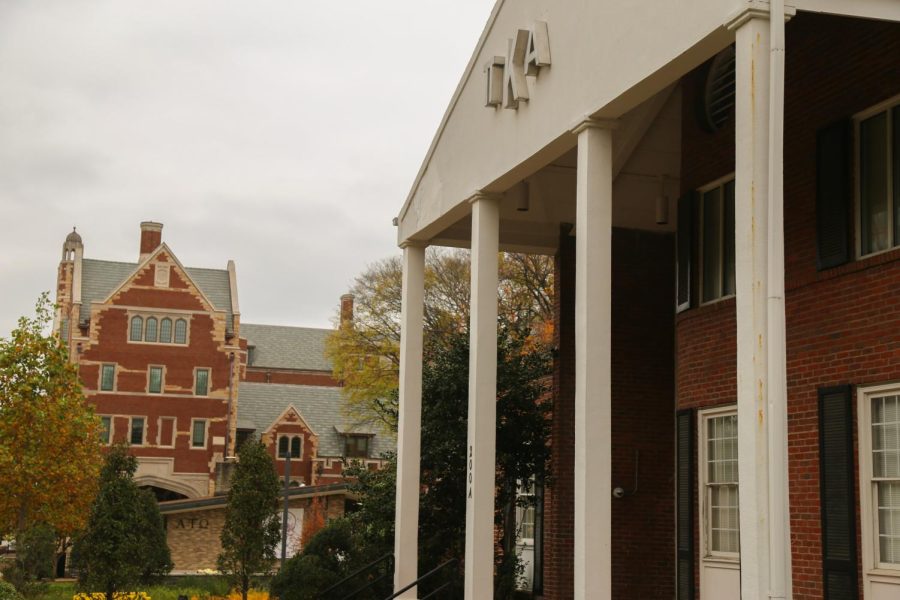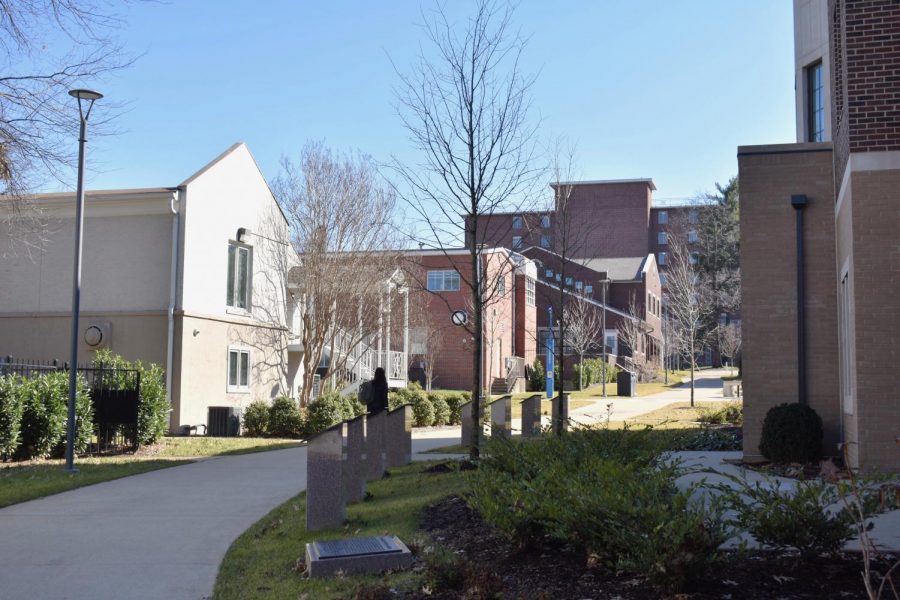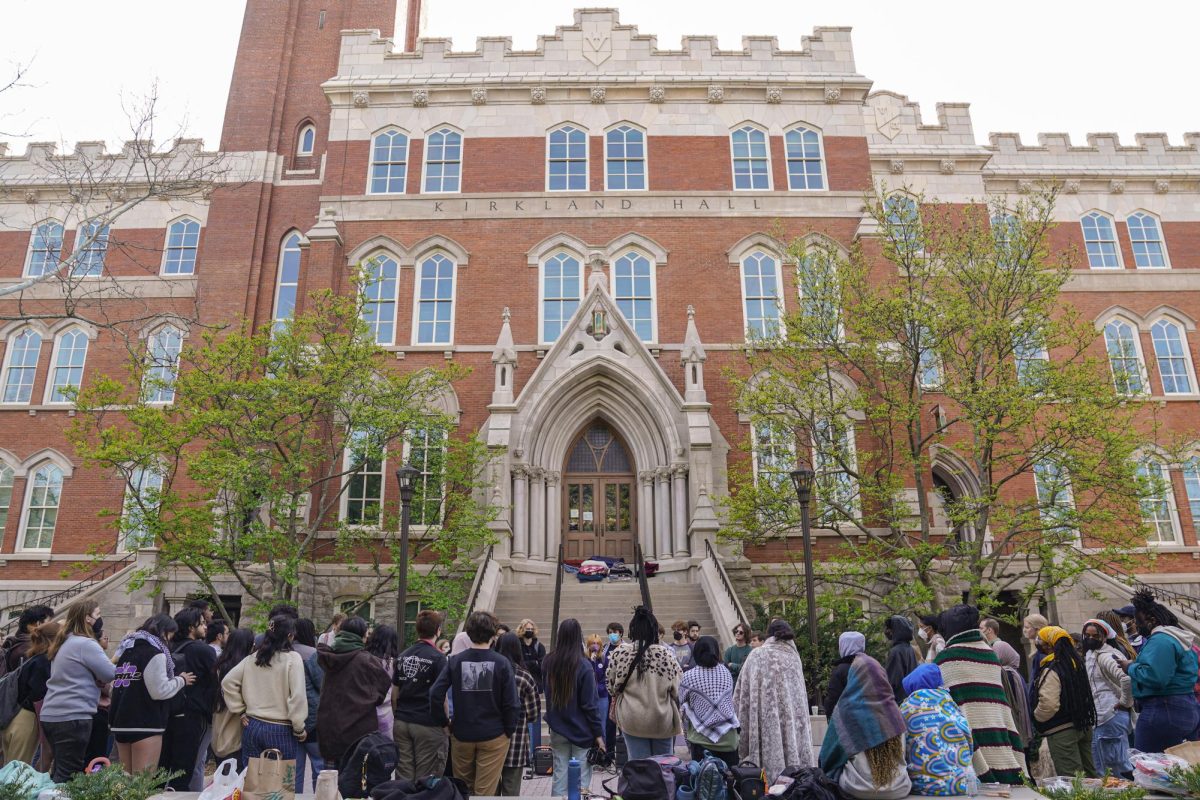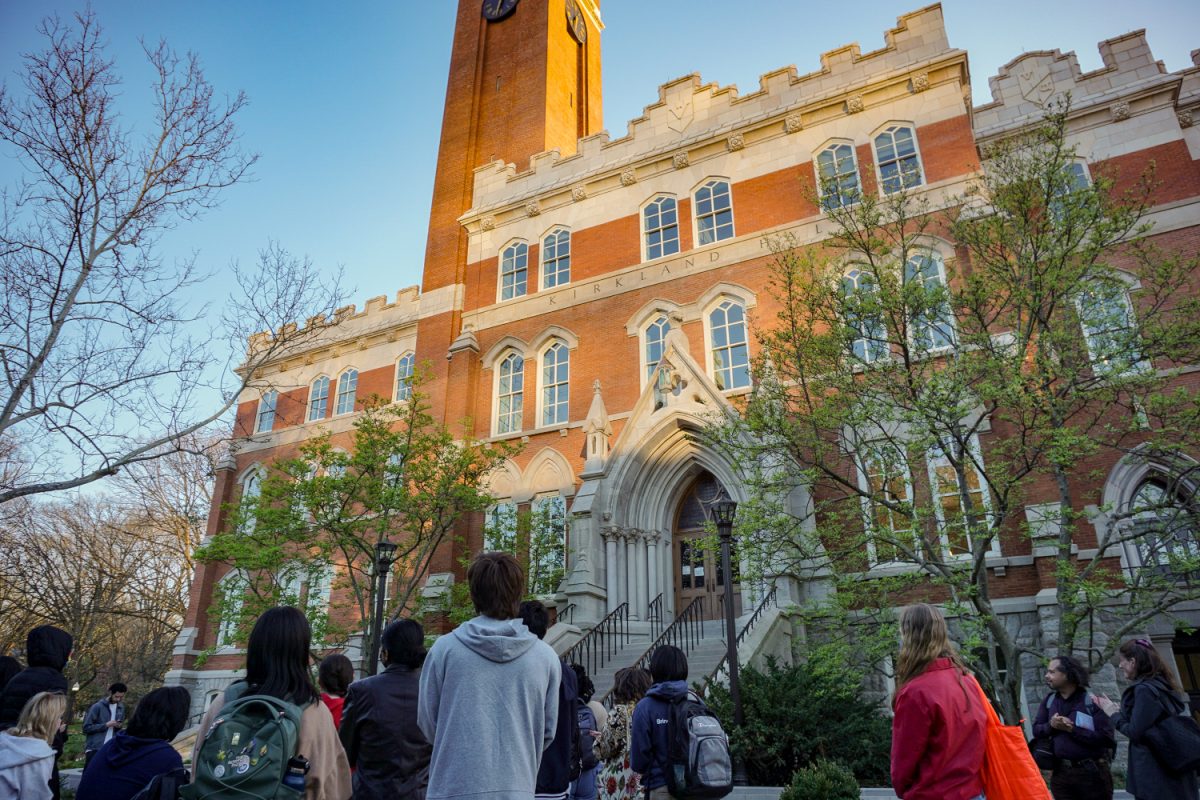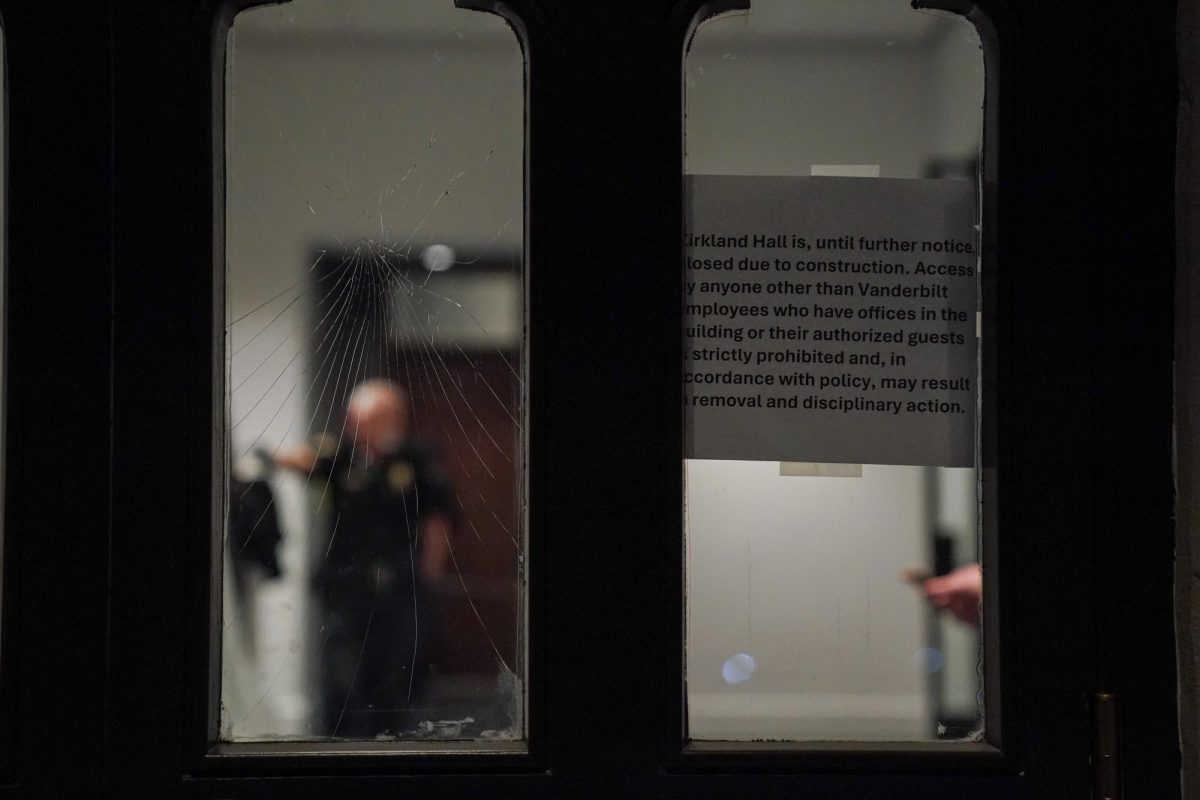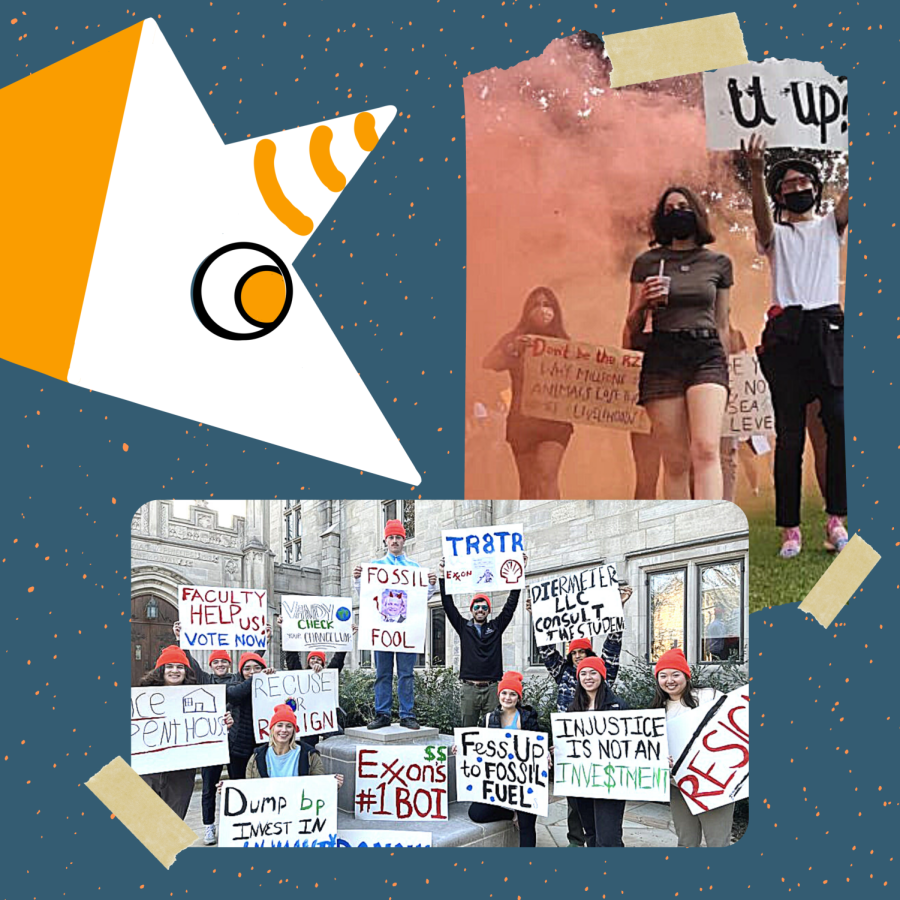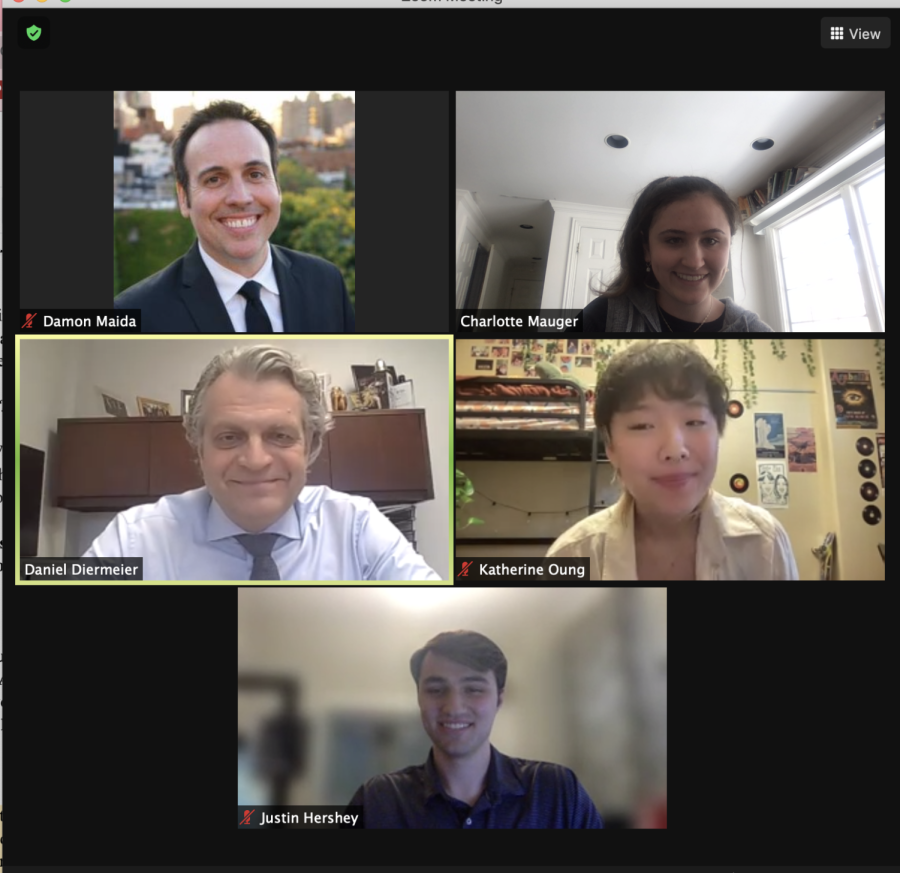Vanderbilt’s ninth Chancellor, former University of Chicago Provost Daniel Diermeier, sat down with The Hustler at the start of his first spring semester leading the university.
Over a Feb. 19 Zoom call, Diermeier discussed graduate students’ unionization efforts, the Abolish Greek Life movement, DivestVU’s upcoming march and COVID-19 regulations.
Vanderbilt Hustler: Recently, we covered graduate worker unionization. And I know this is something that we’ve reported on recently and asked you about before, but do you have anything to say anew on the topic?
Chancellor Diermeier: Sure. It’s very important for us that we create an environment where our graduate students can thrive; that’s central to the mission of Vanderbilt as a research university. We have the Graduate Student Council, which is the official and recognized and legitimate body for representing graduate students that are selected by the graduate students to address these issues of concern. And I think they’re doing a very nice job. I think that’s the right path for students—to address their issues and things they want to discuss by going to their representatives.
And then just to kind of switch gears, how did you spend your snow day? And how do you respond to student criticisms about on-campus food insecurity and inaccessibility?
I spent my snow day largely in my office and getting to and back from campus. The first thing I want to do is that I want to commend both the dining service and facilities teams for the enormous work that they’ve done under harsh weather conditions to support the university’s missions and our community. This was a challenging situation. Campus Dining, for example, was able to—despite the winter weather—commit to providing daily meal services and so forth. So I think there are a lot of things that worked well.
But whenever you have issues on campus that include these kinds of winters, we want to look back and ask ourselves, “What can you do better?” And we will do that post mortem analysis and ask ourselves what worked, what didn’t work, how we can learn that, so that the next time we face similar weather conditions, we improve.
What was the rationale behind not canceling in-person classes, given that we didn’t have any testing this week?
The whole point of bringing students back to campus is to provide a residential experience and, to the extent possible, have in-person classes. It’s true that we didn’t have testing this particular week but, as you know, there’s a lag in testing time and when virals show up. So we felt confident given the very low rates that we have with respect to COVID infections that there would be no additional risk for our students.
So is there going to be something specific for [testing] next week, or are we still going to proceed as normal for the upcoming week?
My understanding is we’re going to proceed as normal, and we’re just going to have the usual testing regime that we have in place, and that has served us well so far.
Dores Divest and DivestVU are planning a march to Kirkland on February 23. What will university operations look like on that day? And do you plan to address the crowd of protesters?
I think we’re just going to have a regular day.
And then noting that the organization has sought administrative approval for the march, what was the process of working with activists on campus like? And what would your reaction be to any demonstration that didn’t seek administration approval beforehand?
It’s important for students to make their voices heard and that includes being advocates for specific issues and to be protesting. It’s always important, particularly in the time of COVID, that they are coordinated with us to make sure that everything is done safely and in a manner that doesn’t disrupt university operations and also, in the context of the pandemic, keeps us as safe as possible.
I’ve been encouraged by the fact that the organizers have reached out to the Dean of Students to work through the issues on that. I understand that it’s still ongoing, and I think that’s the right process.
And then, as long as the protests were to follow the COVID-19 guidelines on campus, had they not reached out to the administration beforehand, how would you have reacted?
It all depends on the circumstances, it’s a very prudent thing. It’s commendable that the students reached out, because these are very special and challenging circumstances. And it’s a very good idea to coordinate to make sure that the protests are done in a way that doesn’t compromise university operations and the safety of our students, staff and faculty—particularly in the current environment. So I think that’s a good idea. It’s a good process that they’ve followed through, and I think it’s the responsible thing to do because we want them to have the opportunity to voice their opinion and to protest, but we want to do it in a way that makes sure that our community and the needs of our community are respected.
Davidson County is still in Phase 1a2 of the COVID-19 vaccination rollout and most of Tennessee has not surpassed phase 1b. Does Vandy have a plan to vaccinate students, faculty and staff currently? And if so, what does that look like, particularly in regards to undergrad to graduate students?
The important thing to recognize is that Vanderbilt University is not a distribution site for the vaccine, the medical center is. So, the medical center is rolling out the vaccination in accordance with the Tennessee Department of Health guidelines. We had conversations, close cooperation with the Medical Center and conversations with the Tennessee Department of Health, but they have their guidelines.
When will Vanderbilt be releasing more details regarding spring commencement for the Class of 2021, and what about the postponed commencement celebrations for the Class of 2020?
We are actively working on that. As you know, we have a tentative plan in place. The moment that we feel that we are ready with the planning for that, we will announce it to the community.
We recently read your opinion in USA Today about universities serving as a unification tool in today’s world, and we’re curious about the origins of the Unity Project. Some people argue that universities have served to perpetuate divisions between Americans, particularly on socioeconomic lines. What would you say to these critics?
Universities are the institution where we can have debates and discussions on various political and policy issues, in part, because they are committed to a type of debate that’s based on evidence. It’s based on arguments and the willingness to listen to others to make your point but also be convinced by that argument. These are fundamental values that are important for democratic societies, but they’re particularly embodied in the university community.
University communities are—or at least strive to be—places where the better argument wins, no matter who says what or what their background is, no matter what they bring to the table. We are engaged in a process to get deeper insights toward the truth. Those are fundamentally important values that are important for the country as a whole. I’m proud that we at Vanderbilt have started the Project on Unity and American Democracy to reinforce the importance of these values, not only within universities but in the country at large.
Who was the main figurehead in charge of the project? Was it you? Was it Professor Meacham?
It was certainly something that Professor Meacham was very interested in, and he was the originator of this concept. We thought about it inside the university; Dean Geer and I were extremely supportive of that. And then our goal was, “How do we get this going as quickly as possible so that we are ready at a time when there is a lot of focus on these issues?”
These are urgent, important discussions that need to happen and that this country really needs to have, and we wanted to play a role in that. We worked very hard to make sure that the Unity Project could be launched as quickly as possible.
The numbers of COVID-19 cases on campus are low so far. What do you think is the biggest cause of this trend? How do you think that a week without testing will change these trends, if they will at all?
We’re very pleased with the low rates. As you probably have read in the media, the expectations were that they would be much higher. We’re pleased with that. We think that the current structure works well. But the absolute most important aspect of this is that everyone in our community continues to follow the public health guidelines: wear masks, practice social distancing, wash hands frequently and avoid large gatherings. That’s the key. The key is that we as a community continue to step up to the challenge.
We have done that in the last few weeks as well since students were back on campus. We need to continue to do that. I don’t think that this particular weather situation and the lack of testing will have a major impact for this week, but we’ll see. Even if there have been hotspots, we have been able to contain them well. I think that this is a structure that works well. But let’s be clear, the fundamental driver for whether we get to be successful or not is how our community and our students have stepped up and followed the guidelines.
The university has largely stayed away from comment on the Abolish Greek Life movement. What led you to adopt this strategy? What do you think Greek life adds to Vanderbilt’s campus?
I think that what we believe in is the education and the development of the whole: that includes an academic curriculum, but it also includes many opportunities for students to engage in social activities and leadership activities that are aligned with their interests. Greek life, like many other student organizations, is part of that. So, they are formed and led by students that provide opportunities for students to assume leadership roles to work through challenges.
That’s the way we like it. We’ll provide a platform for where student organizations can form and provide opportunities for students, but it’s fundamentally up to the students and the student leaders to make this work. Of course, that means that if people step across the line, or they’re acting in a way that’s inconsistent with the values or rules of appropriate behavior for students, we will intervene. Within that, I think that students should step out—there’s good engagement—they should debate and they should work through these things on their own, because that’s what it means to assume leadership roles.
What would it take for the university to potentially get rid of Greek life as an institution across campus?
The issue with Greek life is always whether you want to have it inside the university or outside. It’s important to recognize that at universities where Greek organizations are not officially recognized student organizations; they still exist, but they exist outside of the university. We like this model because it allows us to work directly with student organizations to deal with issues and to make sure that Greek organizations are governed by the same standards that apply to all of our students.
We like that model. It’s important to understand that people can form organizations or associations outside the university as well. That’s why there’s an advantage to have them as a part of student life because it allows us to be more closely in collaboration and cooperation with various student organizations.
The 2020 Financial Report reported that there was a -0.1 percent return on the endowment for the fiscal year ending on June 30. Why do you think that is, and how has such a loss affected university operations?
The endowment returns vary over time. It’s important not just to look at one particular year, but to look really at three- to five- year averages. Obviously, we want our endowment returns to be strong and to support the university’s mission. They have done that over the last few years.
The endowment return doesn’t have an immediate impact on university finances because the way it works is that you have to pay a rate of endowment and it depends on average performance over the last few years, so one particular year doesn’t have a particular impact. We’re not worried about this because of the strong performance of the endowment in prior years. We are, of course, very much focused on the performance of the endowment. But as I said before, one should look really over a multi year-performance than any one particular fiscal year.
Similar to our recent interview with Provost Wente, we are going to ask you a fast five questions. Give us the first answer that pops into your head.
Do you have any pets and if so, can we see them?
I don’t have any pets, so you can’t see them.
Who is your dream dinner guest? It can be anyone: dead or alive.
My dream dinner guest: [Johann Wolfgang von] Goethe, German writer already dead, so it’s gonna be a little bit tough to arrange.
Tom Brady or Michael Jordan?
That’s a hard one for me because I spend a lot of time in Chicago. And I remember Michael Jordan playing. But I have to say that I was mighty impressed by Brady and by the leadership that he displayed over the last few years.
So, final answer: Tom Brady?
I don’t know. I can’t answer that. Too hard for me
You could go back in time, when would you go back to ask them?
Athens during the fifth century.
If you were a college senior right now, what would your post-grad plans be?
I probably would still want to become an academic. I would want to go to graduate school. I think that’s something that I love.











